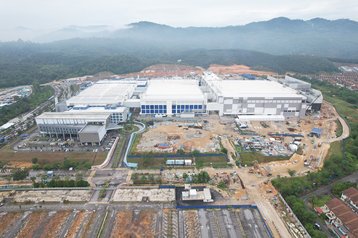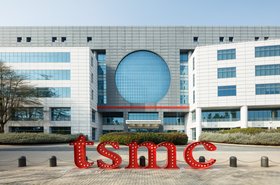Production has started at Infineon’s 200mm silicon carbide (SiC) fab in Kulim, Malaysia.
The German chipmaker’s new $2.2 billion Kulim 3 fab is the largest of its type in the world and in its first phase will focus on the production of silicon carbide power semiconductors and include gallium nitride (GaN) epitaxy.
Infineon has pledged to invest a total of $5.5 billion in Malaysia over the next five years. Around 900 jobs have been created as a result of Kulim 3, with 4,000 new jobs expected by 2029.
GaN is a wide-bandgap material and can handle higher amounts of power than silicon, meaning GaN-based chips can be more efficient and durable than their silicon counterparts.
Silicon carbide is a synthetically produced crystalline compound of silicon and carbon. The material provides several advantages over conventional silicon for power applications, including better thermal conductivity, higher switching speeds, and lower dissipation, making it particularly suitable for the manufacturing of high-voltage power devices.
However, SiC wafer production emits more than three times as much carbon dioxide as traditional silicon wafers. Infineon said the Kulim 3 fab will be powered by 100 percent green electricity and will employ the latest energy efficiency measures to support the company’s carbon neutral goals. Recycling, abatement systems, and water efficiency processes will also be put in place at the plant to reduce emissions.
“New generations of power semiconductors based on innovative technology such as silicon carbide are an absolute prerequisite to achieving decarbonization and climate protection,” said Jochen Hanebeck, CEO of Infineon. “Our technology increases the energy efficiency of ubiquitous applications such as electric cars, solar and wind power systems, and AI data centers.”
He added that the fab will also increase the resiliency of the supply chain for critical components needed for the green transition.
Earlier this week, Infineon announced it would be cutting 1,400 jobs from its global workforce and relocating an additional 1,400 roles to countries with lower labor costs. The news came after the company posted lower-than-expected Q3 2024 revenue and consequently downgraded its full-year revenue guidance for the third time this year.







